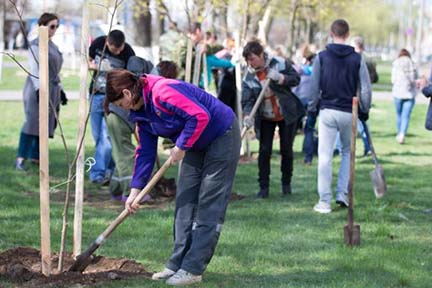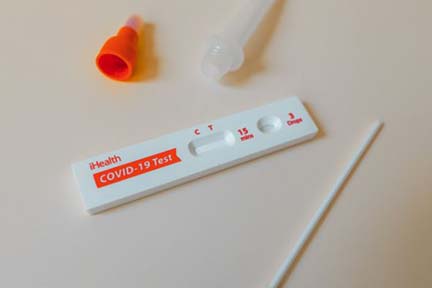
DNR: Support urban trees with a Community Forestry grant
|
|
||||
|
||||
 |
||||
|
||||
|
We recently launched a new website, and we’d love to hear what you think via this brief survey. Thanks for helping us improve our site for all users! |

|
|
||||
|
||||
 |
||||
|
||||
|
We recently launched a new website, and we’d love to hear what you think via this brief survey. Thanks for helping us improve our site for all users! |

FOR IMMEDIATE RELEASE
August 11, 2022
Contact: press@michigan.gov
Gov. Whitmer Announces an Estimated 148,000 Michiganders May Qualify to Have Student Loans Forgiven Under Federal Program
Over 6,000 Michiganders have saved $358 million through the Public Service Loan Forgiveness program
LANSING, Mich. — Governor Gretchen Whitmer is encouraging Michiganders working in public service to review the Public Service Loan Forgiveness (PSLF) program to see if they qualify for federal student loan relief no later than October 31, 2022. Thousands have already utilized the program to pay off their debt, and over 148,000 more Michiganders may be eligible due to the recent PSLF waiver.
“I’m grateful to the countless, dedicated public servants across Michigan that spend their days making our state a better place to live. Whether you are a service member, firefighter, health professional, teacher, social worker, librarian–-the list goes on—thank you for your service,” said Governor Gretchen Whitmer. “Tens of thousands of Michiganders may qualify for this loan forgiveness program, which will help ease the burden of student debt and put money back in people’s pockets. I encourage Michiganders to review the Public Service Loan Forgiveness program and see if they are eligible to have their remaining student loan debt forgiven.”
“The State of Michigan employs nearly 50,000 people across the state. We’re working hand-in-hand with employees to help them take full advantage of the Public Service Loan Forgiveness program,” said Liza Estlund Olson, director of the Office of the State Employer. “By highlighting recent changes to this federal program, we urge borrowers to take a second look to see if they qualify for student loan relief and encourage more Michiganders to join the public sector workforce.”
“As a son of teenagers just trying to get by, we didn’t have much. My single mother did everything she could, but other than a small Pell Grant, I had no help to afford college. Loans were the only way to get the education that no one in my family had. I’ve devoted my career to the service of others both in the non-profit and public sector, and I was excited when I first learned about the expanded Public Service Loan Forgiveness Program,” said Bryan Van Dorn, a state employee from East Lansing. “When I tried to apply for Public Service Loan Forgiveness back in 2010, the program wasn’t the right fit for my situation. So we just kept making loan payments. Chipping away at interest. Hardly making a dent. Last fall the rules changed and each of the payments I had made for the proceeding 10 plus years that were previously ineligible were deemed eligible. So I applied again under this temporary relief. Some paperwork, processing time, and anxious anticipation later, the remaining balance is now zero. Having these loans forgiven all but guarantees that my daughter won’t have to shoulder the same burden.”
“After working as an educator for over 20 years, doing what I absolutely love, I was blessed to have my student loans forgiven years sooner than expected. I am so thankful that I applied for the PSLF program years earlier and followed through each year with the recertification process,” said Erika Carpenter an educator of 23 years in Southfield. “This has helped open additional opportunities for me and I would encourage all educators to take the time to apply. Teachers should not have student loans, especially when we do not get the income we deserve. We teach the world!”
“As educators, we pursue a bachelor’s and master’s degree, masters plus thirty, student teaching without pay and years of continuing education every five years for recertification – all of which has been an investment in my career and the students I enjoy teaching,” said Nikoji Smith, an educator of twenty plus years in Southfield. “I applied for the Public Service Loan Forgiveness Program and was grateful that something actually existed for educators. We are the most underpaid but yet we build the foundation for the doctors, lawyers and judges. I made my monthly payments and figured this would be forgiven by the time I retire. Imagine my surprise when I saw ‘paid in full’. I would encourage all educators to apply for the PSLF. I’ve had many conversations with my colleagues on the ease of the application and yearly recertification process. It feels good knowing that more of my colleagues’ loans are being forgiven as well. For educators, it feels like winning the lottery. This has truly been a blessing!”
Public Service Loan Forgiveness Background
Until October 31, 2022, the U.S. Department of Education is offering public servants working in government and eligible non-profits a second chance to qualify for student loan forgiveness. An estimated 154,000 public service workers in Michigan could be eligible for student loan debt relief under the PSLF waiver. According to the Office of Federal Student Aid’s June report, over 6,000 Michiganders have taken advantage of the PSLF waiver and have had $358 million in loans forgiven.
The recent changes to the federal Public Service Loan Forgiveness program allow previously ineligible borrowers – those with a non-Direct loan, who are not enrolled in an income driven repayment plan, who have missed a repayment, or made a partial repayment in the past – to receive credit toward loan forgiveness for the years they worked in government or a qualifying non-profit.
To apply for the PSLF waiver, borrowers should:
If borrowers have questions regarding their individual situation, they can visit studentaid.gov/pslf/ or call FedLoan Servicing at 1-855-265-4038.
Congress created Public Service Loan Forgiveness (PSLF) to recruit and retain top talent in the public sector workforce. If an individual works for federal, state, local, or tribal government or a qualifying non-profit for 10 years, makes 120 full, on-time loan payments, and submits all required paperwork, the federal government forgives all of their remaining student loan debt.
Though PSLF was established in 2007, it has faced implementation challenges. Prior to the PSLF Waiver, only 2.1% of eligible borrowers had been approved for loan forgiveness. The recent PSLF program overhaul is the U.S. Department of Education’s attempt to deliver on the program’s promise and thank the public service workforce for their dedication and support.
The Public Service Loan Forgiveness: Champions Toolkit is available for employers and professional associations to help them amplify the PSLF waiver opportunity and connect borrowers to resources. The toolkit includes sample email correspondence and social media posts. It is available for download here.

 |
Press Release
FOR IMMEDIATE RELEASE: August 10, 2022
CONTACT: Chelsea Wuth, 517-241-2112, WuthC@michigan.gov
MDHHS announces free COVID-19 tests available for all households through Rockefeller Foundation partnership
LANSING, Mich. – The Michigan Department of Health and Human Services (MDHHS) is announcing its expanded partnership with the Rockefeller Foundation through Project Act to provide 180,000 COVID-19 tests to 36,000 households located anywhere in the state free of charge. Previously, tests were only available in select ZIP codes.
Residents can request the tests through the end of August. Households will receive one kit containing five tests.
“Testing remains both a critical and helpful tool in managing the spread of COVID-19, and reduces the risk of getting infected for our loved ones and neighbors,” said Dr. Natasha Bagdasarian, MDHHS chief medical executive. “We encourage residents to take advantage of these free tests as many families get ready to head back to school. We are grateful for our partnership with the Rockefeller Foundation to ensure equitable access to tools that prevent COVID-19.”
All households in the state of Michigan can order their free COVID-19 tests through AccessCovidTests.org. Each household will receive one kit with five tests, typically within a week of ordering. Individuals without internet access can contact 211 for assistance ordering tests.
This program is in addition to free at-home tests available through the federal government partnership with the United States Postal Service.
MDHHS continues to partner with libraries across the state to provide free at-home COVID-19 tests to Michiganders. Click here for a list of participating libraries.
Private health insurers are required to cover up to eight at-home COVID-19 tests per month for each person covered by a health plan.
For more information about testing, visit Michigan.gov/Coronavirus.


FOR IMMEDIATE RELEASE August 10, 2022 Contact: press@michigan.gov
Gov. Whitmer Announces Third Round of Child Care Grants to Expand Options and Lower Costs for Working Families Licensed child care programs are eligible for Child Care Stabilization Grants to fund quality, affordable care, lower costs, and help parents get back to work
LANSING, Mich. — Today, Governor Gretchen Whitmer announced the launch of the third round of the Child Care Stabilization Grant program, which will award nearly $200 million to licensed child care providers to strengthen their programs and help lower costs for working families.
“High-quality, affordable child care is foundational to our economy. Parents rely on child care so they can go to work knowing that their kids are safe,” said Governor Whitmer. “As a working mom, I know firsthand the importance of having a top-notch early educators to take care of your children when they’re young. That’s why I’m continuing to fight to support child care professionals and the child care industry. I was proud to work across the aisle to make game-changing investments in our childcare providers and professionals in the bipartisan budget I signed just a few weeks ago. Thanks to our bipartisan efforts, we have expanded low- or no-cost child care to 150,000 more kids and are helping new providers open across Michigan. I urge providers to take apply for the grant so they can continue serving their communities and helping young Michiganders thrive.”
“Early childhood is my passion and I have always believed and understood the importance of the early childhood profession. I want to say thank you to the State of Michigan, Governor Gretchen Whitmer, Great Start to Quality, Michigan Department of Education, and all the politicians who decided to agree to get things done for all the early childhood educators, children, and families in Michigan,” said Cassandra Rice, owner and operator of Our Kidz World Learning Center in Detroit. “The decisions that were made as a collective group, relating to the funding of grant funds helped to keep my childcare center open as well as others. The funding help to provide the continuance of a high quality, safe, and healthy environment for children, families, and employees.”
“I am a new child care provider and the idea of caring for and developing children has been a dream of mine for years. I wanted to be able to spend more time with my family, I had a great high paying job, but decided to pursue opening my daycare business,” said Nicole Florez, a home-based child care provider in Muskegon County. “This grant allowed me to purchase needed items for everyday use as well as a few mortgage payments as I started this new endeavor. I started this business hoping to impact children’s lives for the better and help parents. I am so grateful for this and future grants so I can continue to learn and play and develop and do such an important rewarding career.”
Child Care Stabilization Grants The Child Care Stabilization Grant is a non-competitive grant available to approximately 8,000 licensed centers, group homes, family homes, and tribal childcare providers to be used to support operational expenses. All eligible applicants will receive funding. Applications open today and are available through September 9th. Providers can learn more and apply at Michigan.gov.childcare.
In the first two rounds of the Child Care Stabilization Grants, nearly 6,000 child care providers received funding and 38,000 childcare professionals received bonuses.
Child Care Stabilization Grants have been awarded to child care businesses in all 83 counties with a total investment to date of $730 million.
Lowering Costs for Families These grants are part of a $1.4 billion investment to expand access to quality, affordable childcare and get Michigan families back to work. Child care is often the largest expense in a family’s budget and 40% of Michigan families with kids under age 12 are now eligible for free or low-cost child care. To qualify, families must:
Visit Michigan.gov/childcare for a complete list of reasons families may qualify for low or no cost childcare and qualifying income levels for larger families. Families can apply for childcare support by visiting MiBridges.Michigan.gov.
Increasing Access to Care While these grants help keep existing child care providers open, the state is also working to recruit new child care entrepreneurs. In May 2022, Governor Whitmer launched Caring for Mi Future—a $100 million strategy to open 1,000 new child care programs by the end of 2024. In collaboration with the Michigan Departments of Education and Licensing and Regulatory Affairs, the state has brought on three partners to expand access to quality care statewide.
Additional grants and technical assistance will be available to entrepreneurs this fall. |

|
|
|